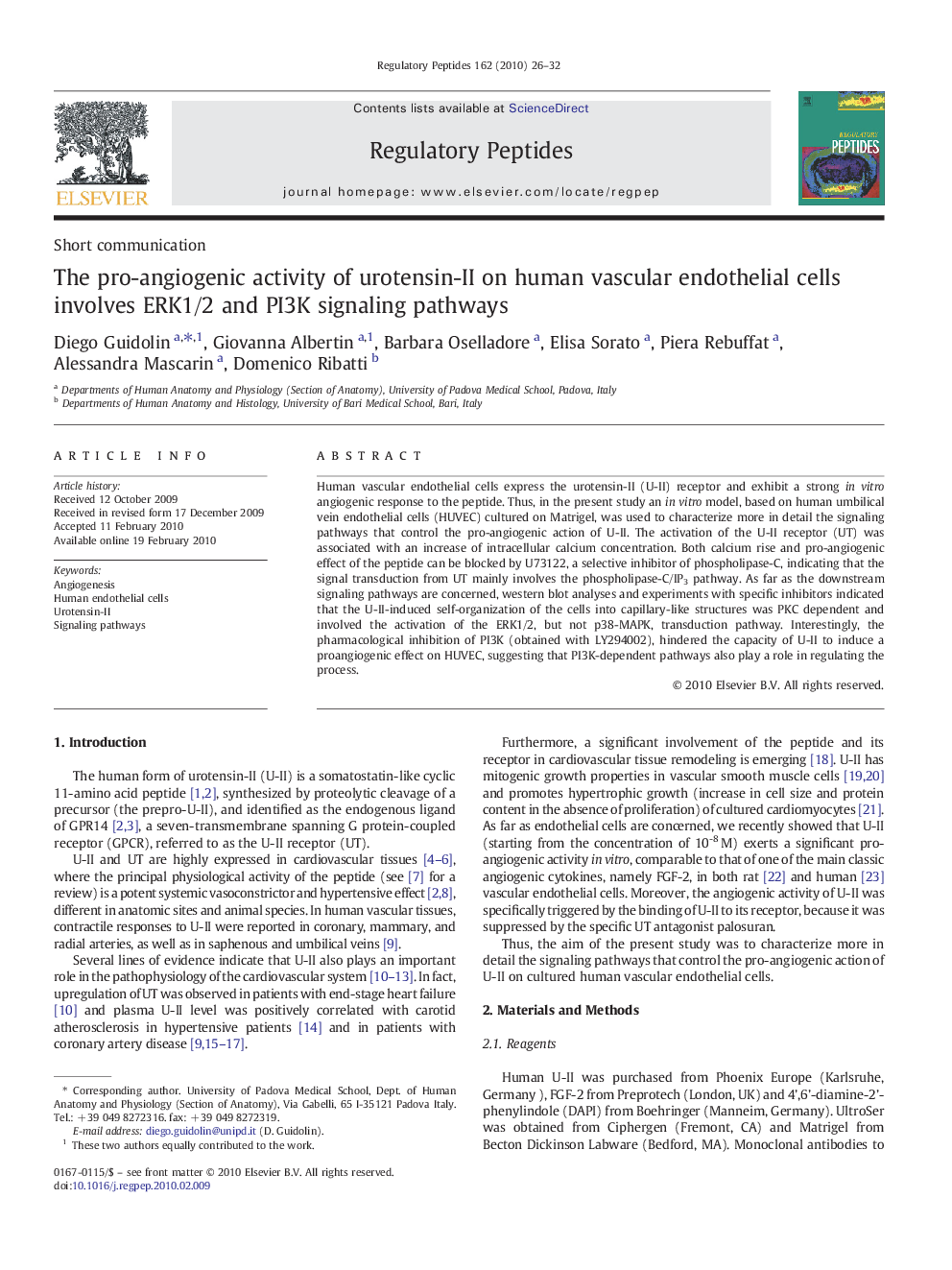| کد مقاله | کد نشریه | سال انتشار | مقاله انگلیسی | نسخه تمام متن |
|---|---|---|---|---|
| 2022852 | 1542423 | 2010 | 7 صفحه PDF | دانلود رایگان |

Human vascular endothelial cells express the urotensin-II (U-II) receptor and exhibit a strong in vitro angiogenic response to the peptide. Thus, in the present study an in vitro model, based on human umbilical vein endothelial cells (HUVEC) cultured on Matrigel, was used to characterize more in detail the signaling pathways that control the pro-angiogenic action of U-II. The activation of the U-II receptor (UT) was associated with an increase of intracellular calcium concentration. Both calcium rise and pro-angiogenic effect of the peptide can be blocked by U73122, a selective inhibitor of phospholipase-C, indicating that the signal transduction from UT mainly involves the phospholipase-C/IP3 pathway. As far as the downstream signaling pathways are concerned, western blot analyses and experiments with specific inhibitors indicated that the U-II-induced self-organization of the cells into capillary-like structures was PKC dependent and involved the activation of the ERK1/2, but not p38-MAPK, transduction pathway. Interestingly, the pharmacological inhibition of PI3K (obtained with LY294002), hindered the capacity of U-II to induce a proangiogenic effect on HUVEC, suggesting that PI3K-dependent pathways also play a role in regulating the process.
Journal: Regulatory Peptides - Volume 162, Issues 1–3, 8 June 2010, Pages 26–32